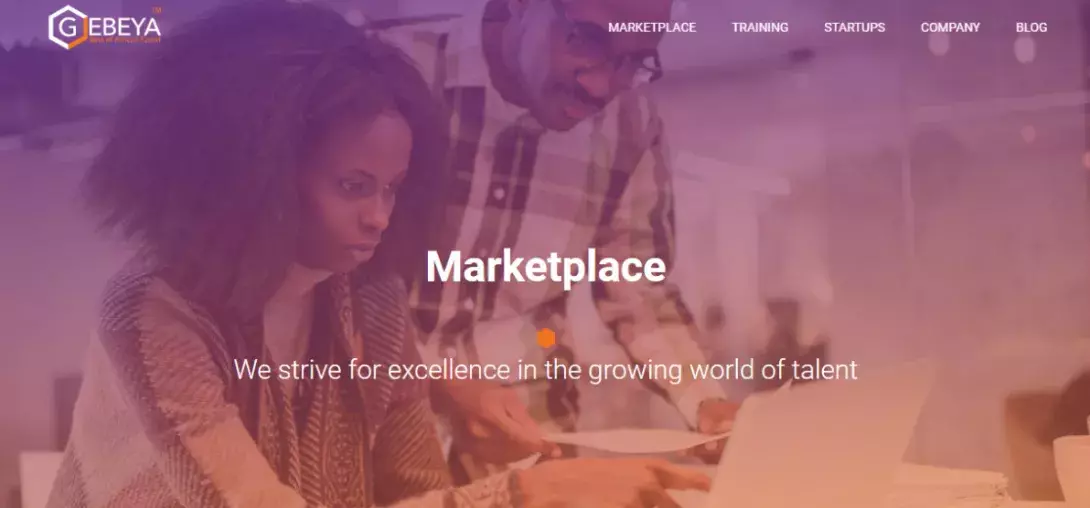There is a growing demand for blockchain developers across all major sectors; from government organizations to the financial industry to healthcare and many others. In response, Gebeya (Africa’s leading IT and software engineering academy) in partnership with Stellar.org (a U.S.-based non-profit that is focused on advancing blockchain technology) have just concluded their maiden training program. A fellowship of 11 current and former Gebeya graduates have now acquired the necessary skills to kick-start Africa’s advancement into the blockchain technology scene.
According to the Co-founder and CEO of Gebeya, Amadou Daffe, the academy intends to produce Africa’s next generation of Blockchain developers. “Our goal is to become an African market reference for Blockchain expertise,” Daffe said.
Gebeya’s blockchain training took place from the 26thof February to the 5thof March, 2019 and the 40-hour intensive session had two objectives. One, to equip well-trained and professional software engineers with in-depth knowledge of blockchain technology. The second objective was to prepare them to train other developers in the future, with the ultimate goal of building a community of over 1,000 blockchain developers in Africa.
The blockchain has widespread applications, and Africans have begun to leverage the technology effectively. Not too long ago, Tumelo Ramaphosa, the South African president’s youngest son, founded a start-up that makes it possible to digitize animal breeding and trading using the blockchain. Named StudEx Wildlife, the company’s goal is to allow people to invest and share in these animals’ value.
Tumelo has been working with blockchain technology for the past nine years, and according to him, StudEx Wildlife’s business model is simple: to decentralize the farming sector in South Africa. He wants farmers to raise more funds via Initial Coin Offerings, allowing investors to invest in—and make profits from—the animals. Tumelo Ramaphosa is expected to speak at the Unlocking Blockchain Africa conference that is billed to take place in December 2019.
Marvin Coleby, the CEO of one of Africa’s leading fintech firms, Raise, acknowledges the benefits that Gebeya’s initiative will bring to the African continent. Coleby opined that blockchain and distributed ledger technologies could spur social and economic independence for the billions of people in (and outside of) Africa. Before this can happen, however, Coleby admitted that the blockchain ecosystem in Africa needs more local developers and engineers to build the system. “This is where Gebeya comes in,” he said. Gebeya is the only institution in Africa to formally offer blockchain courses to engineers, and they are gradually creating a community of developers that interested companies can hire or partner with. “We are lucky to be partners with a company building such a foundational aspect of Africa’s digital future,” Coleby concluded.
Raise leverages blockchain technology, making it possible for people to create legally enforceable tokens, use these tokens to represent real-world assets, and trade the tokens on the Stella platform. Their ultimate goal is to allow seamless asset management for companies, law firms, broker-dealers, and investors. Find out more about Raise here.
Gebeya’s Co-founder, Hiruy Amanuel, emphasizes why it is important to train local talents within the continent. According to Amanuel, if professionals in Africa are not given opportunities in their home countries, they will definitely take their expertise to Europe or the USA.
Having accomplished what they set out to do, Gebeya and Stella now have a fellowship of developers with the skills to work on blockchain projects and the ability to train other students to do the same. As mentioned earlier, expertise in blockchain technology is in high demand, with developers in the sector earning as much as $172,000…
Content retrieved from: https://www.bitcoininsider.org/article/66831/amadou-daffe-hiruy-amanuel-announce-first-class-blockchain-academy-graduates-africa.



No responses yet